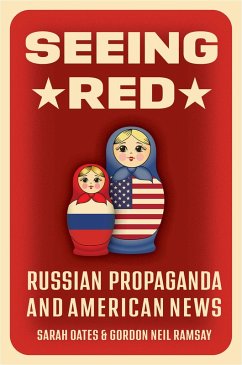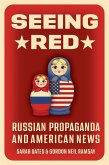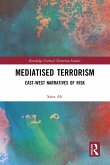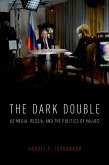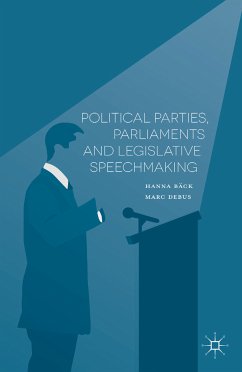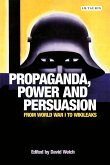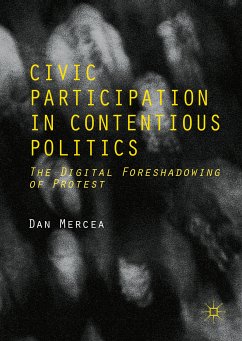The U.S. media has been tainted with Russian disinformation, but the more significant threat is how the Right has embraced the Russian model of the news media as a vehicle for propaganda. This could not have happened without Donald Trump, who has been aided and abetted by politicians and news outlets that favor persuasion over information. From his inauguration onwards, Trump has shown allegiance to the Kremlin propaganda playbook?he consistently denies reality, amplifies lies, vilifies the free media, and broadcasts disinformation.
Seeing Red breaks new ground in investigating the scope of Russian disinformation, arguing that key politicians and media outlets in the United States have facilitated the dissemination of Russian propaganda. From the 2020 elections to the Capitol Insurrection to the war in Ukraine, Sarah Oates and Gordon Neil Ramsay examine the penetration of key Kremlin strategic narratives that attempt to project Russian power, blame NATO for Russian aggression, and attack democracy via the U.S. news. Despite knowledge of the risk and resourceful work on tracking down Russian propaganda in the United States, the problem of foreign disinformation continues to this day. As Oates and Ramsay argue, this is in part due to exploitation of the American tradition of free speech and the open nature of the U.S. media system. Yet, the much more dangerous menace lies not in how foreign governments attempt to manipulate the media, but in how our media system has been compromised by domestic actors who follow an authoritarian playbook and promote anti-democratic narratives. When it is hard to tell the difference between what the Russians are saying about the Democrats and how Fox News is covering Joe Biden, it is time to realize that some American outlets have crossed the line from news to propaganda.
Dieser Download kann aus rechtlichen Gründen nur mit Rechnungsadresse in A, B, BG, CY, CZ, D, DK, EW, E, FIN, F, GR, HR, H, IRL, I, LT, L, LR, M, NL, PL, P, R, S, SLO, SK ausgeliefert werden.
Hinweis: Dieser Artikel kann nur an eine deutsche Lieferadresse ausgeliefert werden.

